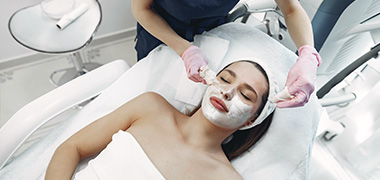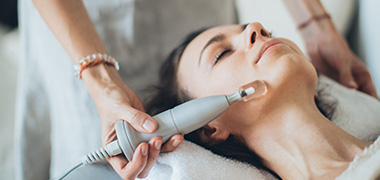
How do I become a makeup artist?
Certificate III in Make-Up
- There are no mandated entry requirements.
 The Makeup Technicians
The Makeup Technicians
Diploma of Screen and Media (Specialist Make-up Services)
- There are no mandated entry requirements.


Advanced Diploma of Screen and Media (Specialist Make-Up Services)
- There are no mandated entry requirements.
 The Makeup Technicians
The Makeup Technicians
Certificate III in Beauty Services
- There are no mandated entry requirements.


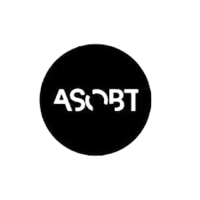





Certificate IV in Screen and Media (Specialist Make-Up Services)
- There are no mandated entry requirements.


Design and Apply Make-Up
- There are no mandated entry requirements.
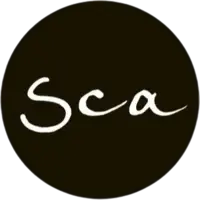





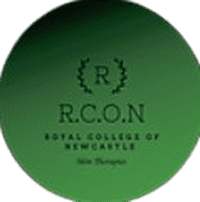

Design and Apply Make-Up for Photography
- There are no mandated entry requirements.


Related occupations
Nail Technician
Nail Technicians provide manicures, pedicures, and nail enhancements, creating art designs, selling products, and maintaining equipment in salons.
Beautician
Beauticians enhance clients' appearance through treatments like facials, massages, and makeup, with diverse career paths available.
Eyelash and Eyebrow Technician
Eyelash and Eyebrow Technicians offer services like extensions, tinting, shaping, and threading, while managing salon tasks and maintaining equipment hygiene.
Waxing Therapist
Waxing Therapists remove body hair with hot and strip wax, providing aftercare while working in salons, spas, or mobile services.
Spa Therapist
Spa Therapists provide body and relaxation treatments in various wellness settings, focusing on client indulgence and maintaining a serene environment.
Laser Therapist
Laser Therapists use non-ionising radiation for skin treatments, tattoo removal, and hair removal, consulting clients to tailor effective laser programs.
Dermal Therapist
Dermal Therapists carry out laser treatments, chemical resurfacing, and skin therapies, collaborating with medical professionals in clinics and spas.
Beauty Therapist
A Beauty Therapist provides beauty treatments, assesses client needs, and offers product advice, requiring strong communication skills.
Cosmetic Nurse
Cosmetic Nurses perform beauty treatments, provide client assessments and advice, requiring strong communication, customer service, and time management skills.
Special Effects Makeup Artist
A Special Effects Makeup Artist creates unique looks for film, TV, or stage by applying makeup for effects like injuries or character transformations.
Hair and Makeup Artist
A Hair and Makeup Artist creates specific looks for performers in film, TV, and theatre, adapting techniques for various productions.
Dermal Clinician
A Dermal Clinician performs non-surgical cosmetic skin treatments, including laser procedures, to address various patient concerns.
IPL and Laser Technician
An IPL and Laser Technician performs cosmetic skin treatments using light and laser therapies to address various patient concerns.
Electrologist
An Electrologist uses electrical currents for hair removal, conducting consultations and ensuring high hygiene standards in beauty clinics.
Skin Therapist
A Skin Therapist assesses skin conditions and provides treatments like facials and chemical peels to enhance clients' skin health.
Clinical Aesthetician
A Clinical Aesthetician provides specialised skin treatments, using advanced techniques to enhance clients' appearance and address skin concerns.
Common questions
How long does it take to become a Makeup Artist?
You can get started in makeup artistry with a Certificate III in Make-Up or Beauty Therapy, these qualifications usually takes about 6 months to complete. At the same time you should be practicing as much as possible, and a job in the cosmetics section of a chemist or department store would be a perfect entry point. If you have your heart set on an international career in film and television you’ll need a Diploma or Degree which can take 2-4 years.
How much do Makeup Artists earn?
In Australia, a full time Makeup Artist generally earns $1,350 per week ($70,200 annual salary) before tax. This is a median figure for full-time employees and should be considered a guide only. As you gain more experience can you expect a higher salary than people who are new to the industry.
What are the job opportunities for Makeup Artists?
Opportunities for Makeup Artists in Australia have grown strongly over the last 5 years and as of 2016 there were approximately 2,600* make up artists employed around the country. Make up artists work in beauty salons, spas and wellness centres, department stores, photographic studios, television networks, film and production companies, fashion houses, live clubs and theatres.
Source: Australian Government Labour Market Insights
Further reading

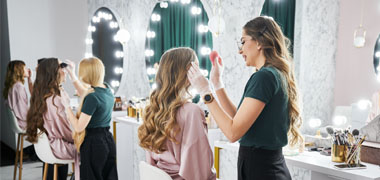
Most popular hair and beauty courses
21st June 2022)